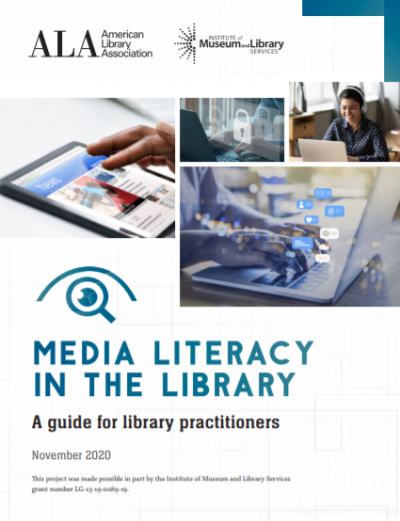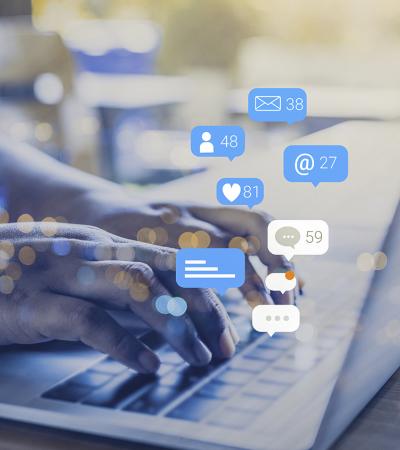Does your library have a podcast? Is someone you know a blogger? Do you have staff or patrons who are “digital storytellers”?
Creating media content has become easier than ever, thanks to the wellspring of new platforms and free tools. While we can’t forget that major companies like Facebook and YouTube are profit-driven, we can help our patrons navigate these platforms and build their technical confidence while also offering opportunities to explore the “bigger picture”: how what we create affects the world around us.
Along the way, we also explore the emerging opportunities of libraries themselves as media creators, with staff and patrons collaborating to fill the voids created by the rapid disappearance of local news sources. Today, many people feel left behind by traditional or legacy media. They don’t trust news outlets. They may feel “legacy media” ignores or overlooks them. They can discover a voice and important role through media creation (or “produsing,” the social media-age concept of both “producing” and “using” news), while also gaining awareness of—and empowerment through—their personal digital footprint.
Let’s join our patrons on the journey of creating, sharing, reacting to, and evaluating media content. That journey includes a new horizon filled with possibilities: the expanding territory of media creation and engagement.
>>> Download "Media Literacy in the Library: A Guide for Library Practioners" <<<
Workshops in podcasting, blogging, video blogging, and digital storytelling
Topics may include how to utilize technology; successful interview techniques; journalistic checklists; and how to use storytelling to communicate information and ideas. Digital storytelling invites the use of video, photography, animation, and music to tell a story—one that may indeed be a news story!
Local media meet-and-greets and panel discussions
Bring together representatives from traditional media (newspaper, radio, TV) and new media (social media and online platforms) to discuss their mission and challenges. Consider asking panelists to compare the approaches and methods they use in creating content. Consider asking audience attendees which sources they use, their level of trust, and which sources they identify with and why. Explore unique roles and areas of common ground.

Tracking our digital footprints
This hands-on workshop invites people to consider the footprint they create. Invite participants to search their own names in Google. Possible areas of focus may include “think before you post”; how to create an online brand; and how to take control of your footprint.
Technology open house
Does your library have a makerspace, a media lab, or a recording studio? Or do these exist elsewhere in the community or schools where you can lead a special program? Consider leading a workshop, woven into the core tenets of media literacy, and inviting participants to envision their roles as community journalists.
School newspaper or local access channel
Consider ways to collaborate with these organizations. How can the library partner or support student journalism? Is there a student who would cover the “library beat”? Would an instructor like a special library presentation on media literacy? Can the library platforms help expand the reach of student writers?
To learn more about media literacy, check out ALA's "Media Literacy in the Library: A Guide for Library Practitioners."


